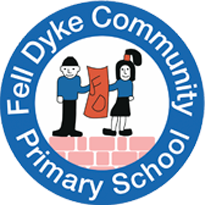Religious Education
Our Aim
At Fell Dyke Community Primary School, we recognise the importance of children gaining an understanding of different faiths to prepare them for life in modern, multi-cultural Britain. Through our curriculum, we aim to promote the virtues of respect, empathy and tolerance. We believe that Religious Education (RE) provides children with an opportunity to celebrate differences within our school community and the diverse wider world. It also equips children with the knowledge to challenge stereotypes.
We intend that once our pupils leave our school, they will continue to implement these values in society and be successful global citizens.
Curriculum Organisation
At Fell Dyke, we follow the ‘Discovery RE’ approach to Religious Education. This is an enquiry-based learning approach which is used in Key Stage 1 and Key Stage 2. Children are supported to learn about and learn from religion. Our curriculum motivates in-depth exploration of RE content in order to answer the big enquiry question that is posed across each unit. For example, ‘Is Shabbat important to Jewish children?’, ‘Is forgiveness always possible for Christians?’ and ‘Is anything ever eternal?’
Each unit explores the big question through four steps: engagement, investigation, evaluation and expression.
Step 1: Engagement: the children’s own experiences are explored to act as bridge from their world (which may or may not include religion) into the world of the religion being studied.
Step 2: Investigation: over approximately three lessons children are guided to explore and investigate appropriate subject knowledge relevant to that question of enquiry.
Step 3: Evaluation: an assessment activity enables each child to show their thinking and the depth of critical evaluation.
Step 4: Expression: this refers the children back to the starting point of their own experience and allows them to reflect on whether their findings have influenced their own thinking.
During RE lessons, children’s critical thinking skills are developed and empathy of people and their beliefs (religious or otherwise) are enhanced. Our approach takes very seriously the philosophy that children are free to make their own choices and decisions concerning religion and belief.
At Fell Dyke, Religious Education is taught weekly. Every half term, each class investigates a new enquiry question linked to a religion. This means that children will over six RE units over a year. Throughout the curriculum, children will study four of the world’s primary religions: Christianity, Islam, Hinduism and Judaism. Christianity is taught in every year group and develops children’s learning, building on their knowledge and skills in a progressive manner.
In the Early Years Foundation Stage (EYFS), RE is part of the children’s learning journey. Children begin to understand and value the differences between individuals and groups within their community and around the world. Pupils also learn about religions and cultures through exploring religious festivals and celebrations. The Personal, Social and Emotional Development (PSED) and Understanding the World strand of ‘Birth to Five’ is used as a reference point to support practitioners to implement the Statutory Framework for EYFS. At the end of the EYFS, children’s skills are assessed against this Early Learning Goals.
Our RE curriculum is enriched through experiences such as visitors from faith leaders and followers in the community; visits to places of worship and assemblies to recognise special religious events. These enrichment opportunities also introduce children to religions that are not covered on our curriculum, including Buddhism and Sikhism.
Knowledge, Progress and Assessment
In each RE topic, children are working towards acquiring the knowledge and experience to help them answer the enquiry question which is posed at the beginning of the unit and revisited throughout. Children are assessed formatively throughout lessons against a clear set of intended outcomes which are outlined in each unit. These formative assessments are used by teachers to gain a clear vision of the pupils’ progress through a topic and accumulation of knowledge over time. Step 3 of the enquiry (evaluation) provides an explicit assessment opportunity where children can demonstrate their understanding and critical thinking.
After progressing through the RE curriculum, children should have acquired a better understanding of the religions that make up the UK landscape and how they can work alongside each other to create a cohesive community. They will be respectful, tolerant and empathetic members of society. Pupils should also have developed skills in reflecting on and communicating ideas, opinions and feelings collaboratively and independently.
